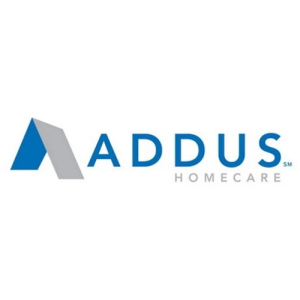Addus HomeCare Comments on Final Department of Health and Human Services Rule
One provision of the rule, which was originally proposed in April 2023, mandates that state Medicaid agencies be required to ensure that a minimum of
Dirk Allison, Chairman and Chief Executive Officer of Addus HomeCare, stated, “As a provider of home care services, we support the stated goal of HHS to expand access to more services like ours for Medicaid beneficiaries while providing for a stable ongoing workforce. The new reporting requirements, additional monitoring and quality measures will strengthen necessary safeguards that promote more consistent care for the patients we serve. However, we are disappointed that HHS elected to keep the
“We will continue to evaluate the potential impact of all aspects of this rule on our business, as we will have at least six years to prepare for final implementation. We see many benefits for Addus, and we are fortunate to have the size, scale and market coverage to support our ability to manage through the new requirements. We will also continue to advocate for increased reimbursement for HCBS, which translates directly into improved wages and benefits for the direct caregivers who provide essential home-based services for our population of Medicaid beneficiaries.
“We would expect to see the most significant negative impact from implementation of the rule on smaller providers and the beneficiaries they serve. These providers lack the scale and technological capabilities to operate under these requirements and implementation could lead to further industry consolidation. In light of the final rule, Addus is actively pursuing opportunities to address this new industry dynamic with greater scale and with an emphasis on states where we have the best opportunity to engage in meaningful, long-term value creation and partnership.
“We also anticipate legal challenges from multiple stakeholders, including states, to prevent implementation of this provision, although the potential outcome of such litigation is unknown. However, regardless of any future developments, we will continue to focus on managing our business and providing safe, quality home-based care for the consumers we serve,” added Allison.
Forward-Looking Statements
Certain matters discussed in this press release constitute forward-looking statements within the meaning of the Private Securities Litigation Reform Act of 1995. Such forward-looking statements may be identified by words such as “preliminary,” “continue,” “expect,” and similar expressions. These forward-looking statements are based on our current expectations and beliefs concerning future developments and their potential effect on us. Forward-looking statements involve a number of risks and uncertainties that may cause actual results to differ materially from those expressed or implied by such forward-looking statements, including discretionary determinations by government officials, the consummation and integration of acquisitions, transition to managed care providers, our ability to successfully execute our growth strategy, unexpected increases in SG&A and other expenses, expected benefits and unexpected costs of acquisitions and dispositions, management plans related to dispositions, the possibility that expected benefits may not materialize as expected, the failure of the business to perform as expected, changes in reimbursement, changes in government regulations, changes in Addus HomeCare’s relationships with referral sources, increased competition for Addus HomeCare’s services, changes in the interpretation of government regulations, the uncertainty regarding the outcome of discussions with managed care organizations, changes in tax rates, the impact of adverse weather, higher than anticipated costs, lower than anticipated cost savings, estimation inaccuracies in future revenues, margins, earnings and growth, whether any anticipated receipt of payments will materialize, any security breaches, cyber-attacks, loss of data or cybersecurity threats or incidents, and other risks set forth in the Risk Factors section in Addus HomeCare’s Annual Report on Form 10-K filed with the Securities and Exchange Commission on February 27, 2024, which is available at www.sec.gov. The financial information described herein and the periods to which they relate are preliminary estimates that are subject to change and finalization. There is no assurance that the final amounts and adjustments will not differ materially from the amounts described above, or that additional adjustments will not be identified, the impact of which may be material. Addus HomeCare undertakes no obligation to update or revise any forward-looking statements, whether as a result of new information, future events or otherwise. In addition, these forward-looking statements necessarily depend upon assumptions, estimates and dates that may be incorrect or imprecise and involve known and unknown risks, uncertainties, and other factors. Accordingly, any forward-looking statements included in this press release do not purport to be predictions of future events or circumstances and may not be realized.
About Addus HomeCare
Addus HomeCare is a provider of home care services that primarily include personal care services that assist with activities of daily living, as well as hospice and home health services. Addus HomeCare’s consumers are primarily persons who, without these services, are at risk of hospitalization or institutionalization, such as the elderly, chronically ill and disabled. Addus HomeCare’s payor clients include federal, state, and local governmental agencies, managed care organizations, commercial insurers, and private individuals. Addus HomeCare currently provides home care services to over 49,000 consumers through 217 locations across 22 states. For more information, please visit www.addus.com.
View source version on businesswire.com: https://www.businesswire.com/news/home/20240423125905/en/
Brian W. Poff
Executive Vice President,
Chief Financial Officer
Addus HomeCare Corporation
(469) 535-8200
investorrelations@addus.com
Dru Anderson
FINN Partners
(615) 324-7346
dru.anderson@finnpartners.com
Source: Addus HomeCare Corporation







